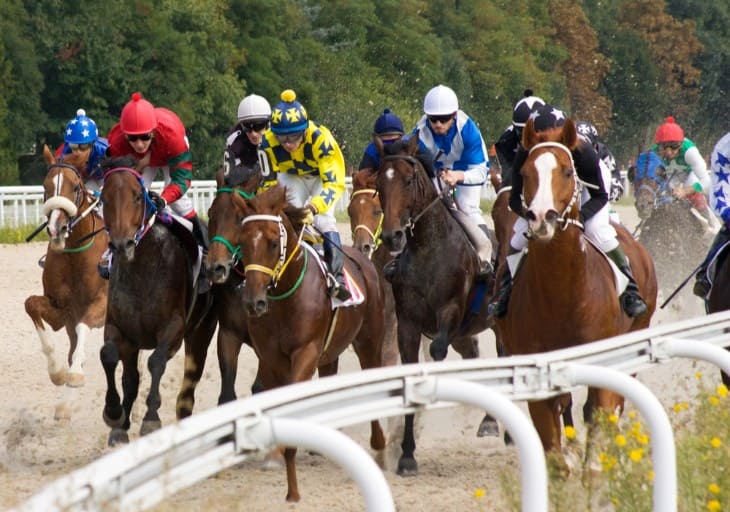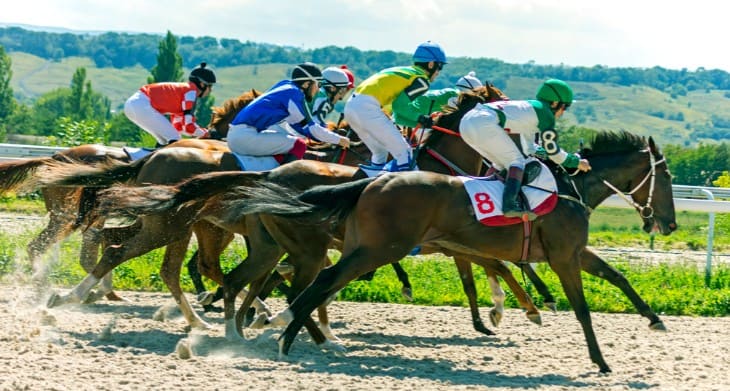Horse racing has a long history and is now facing significant changes. As races continue, the sport is nearing a crucial transformation. This piece looks at the predictions and current trends influencing horse racing in the 21st century. We'll also touch on the advancements in technology and the increasing focus on ethical issues.
Tracing The Evolution of Horse Racing
To appreciate the future direction of horse racing, it's important to know its history. The sport started centuries ago, evolving from basic local competitions to the global events we see today. Originally, these races were simple measures of stamina and pace. Now, they are complex events familiar to fans globally. Key racetracks like Ascot and Epsom Downs, and notable horses like Eclipse and Secretariat, offer a perspective on the sport's present course.

Evolving Technologies: Digitizing the Racetrack
Horse racing is adapting to modern technology, changing many facets of the sport. With new timing systems and detailed data analytics, technology is expanding the possibilities of racing. The racetrack isn't just a physical space anymore; it's also a digital platform available to many globally. Live broadcasts, user-friendly apps, and virtual reality options change how fans interact with races, allowing them to watch from anywhere.
In addition to digital advancements, new tools and methods are enhancing horse safety and performance. Sensors can measure vital signs, detect exhaustion, and assist in preventing injuries, safeguarding both horse and jockey. Genetic studies and informed breeding are leading to stronger horse athletes, setting new standards in speed and stamina. As these technological changes continue, they set the direction for horse racing's future, combining old practices with new techniques.
Equine Athletes of the Future: Breeding and Genetics
In the hallowed halls of breeding, a revolution is underway that promises to sculpt the very essence of horse racing. The art and science of equine genetics are fusing together to create a new breed of athletes. Long gone are the days of relying solely on intuition and tradition; today, precision breeding techniques are unlocking the genetic code that determines speed, stamina, and resilience.
Selective breeding has given rise to equine superstars like Frankel and Enable, whose extraordinary abilities have left a lasting imprint on the sport. Genetic markers for speed, endurance, and even temperament are being meticulously decoded, enabling breeders to craft horses tailored for specific race distances and terrains. The evolution is not just physical but also psychological, as the genetic predisposition for a strong racing spirit is unravelled.
However, this genetic journey is not without ethical debates. As we peer into the DNA of future champions, questions arise about the balance between nature and nurture, as well as the potential risks of narrowing the gene pool. Striking this balance is crucial, for while science opens doors, responsibility must guide us through.
Sustainable Practices in Horse Racing
With increasing environmental awareness, horse racing is facing decisions about sustainability to remain relevant. The sport's impact is not only on the tracks but also on the environment and local communities. Changes towards greener practices are evident throughout the racing industry.
Tracks are adopting environmental-friendly measures and using energy-efficient infrastructure. Focus on waste handling, conserving water, and sustainable resources is becoming integral to the racing process. The aim is to balance race excitement with environmental care.
The well-being of the horses is also crucial. Comprehensive care, appropriate feeding, and ethical breeding ensure the health and lifespan of these animals. As horse racing evolves, there's a shift towards a kinder approach, emphasizing that the sport's future isn't just about winning races but about progressing towards responsible and empathetic practices.
Changing the Betting Landscape: Wagers and Odds
At the core of horse racing, traditional betting is changing in line with the digital age. Paper tickets and vocal bookmakers are being replaced by online systems and modern betting exchanges. The method of placing bets is evolving with technological advancements.
These changes not only make betting more available but also introduce innovative betting methods. In-play betting allows stakes to be made during a race, offering a new aspect of involvement. Using algorithms and data analysis, real-time odds and insights are provided, changing how bets are strategically placed.
However, with these digital shifts come concerns about responsible gambling and addiction risks. It's vital to find a balance between leveraging new technology and ensuring bettors' welfare, highlighting the importance of ethical thinking in the evolving world of horse racing betting.
You can read more about how technology changes horse racing bets here.
Enhancing Viewer Experience: Virtual Reality and Augmented Reality
The future of horse racing extends its spectator experience beyond just watching from the stands. With Virtual Reality (VR) and Augmented Reality (AR), fans can feel more engaged and closer to the racetrack action. Instead of just watching, they can virtually experience riding with the jockeys.
VR provides an experience of being on the horse, racing with competitors, connecting viewers more closely to the sport. On the other hand, AR adds digital elements to the real-world view, giving live data, background information, and the ability to see simulated races with historic champion horses.
Yet, the traditional atmosphere of race day remains important. It's essential to combine the advancements of VR and AR with the genuine experience of being at the racetrack. The integration of these technologies and the real-world setting hints at a future where fans aren't just onlookers but active participants in horse racing.
Globalisation of the Sport: International Competitions and Markets
Horse racing is becoming a global event, bringing together different cultures and traditions, expanding beyond national limits. Events like the Dubai World Cup and the Prix de l'Arc de Triomphe are now key fixtures, drawing participants and fans worldwide. These events highlight not only the horse's skills but also the unique attributes of each host city. Sharing knowledge, breeding methods, and racing tactics internationally enhances the sport and boosts its worldwide reputation.
Outside the races, the horse racing market is growing. Betting now extends beyond local regions, allowing bettors worldwide to join in. As digital platforms increase and boundaries become less distinct, horse racing's global reach strengthens, connecting fans and competitors around the world.
Jockeys and Trainers in the 21st Century
In horse racing, the roles of jockeys and trainers are crucial to achieving success. As the sport changes, their roles and responsibilities adapt. Modern jockeys and trainers represent more than just skill; they reflect the changing times in horse racing.
Today's jockeys use both traditional skills and modern data to make informed decisions. While the bond between horse and rider remains essential, they now use tools like virtual training, biometric data, and AI recommendations to enhance their strategies.
Trainers, on the other hand, blend old knowledge with new methods. Their role goes beyond just training, managing horse health, improving performance, and planning strategies. Ensuring the horse's well-being while pushing for top performance shows the depth of a trainer's dedication to the sport.
Health and Welfare of Racehorses: Advances in Veterinary Care
Horse racing's vitality is directly linked to the health of its horses. As the sport progresses, there's a growing focus on improved veterinary practices for these equine participants. Instead of just traditional treatments, there's a shift towards scientific approaches in horse care.
Today's equine healthcare uses a mix of diagnostics, treatments, and preventive steps to maintain the health and longevity of racehorses. Modern imaging techniques provide insights into horse anatomy, while new therapies and specific medicines address health issues effectively. Data-driven rehabilitation plans help recover injured horses, potentially giving them another chance in racing.
Furthermore, there's a stronger commitment to horse welfare outside of medical settings. Ethical treatment and responsible racing are becoming cornerstones in contemporary horse racing. Measures like drug tests and appropriate retirement plans showcase the sport's dedication to the well-being of its horses.
Racing Beyond the Track: Social and Cultural Impacts
Horse racing has a significant cultural and societal influence beyond just being a sport. It not only offers excitement through races but also influences wider society, touching various aspects of life and community. This chapter delves into horse racing's relationship with culture.
Throughout history, horse racing has been a place where different societal groups come together. Today, it continues to draw diverse groups of fans, highlighting its unifying nature. The sport has influenced fashion, food, and art, evident in race day outfits, food offerings at racecourses, and horse-themed art.
Additionally, horse racing stimulates the economy by promoting tourism and boosting local businesses. Many racing venues are notable architectural structures, becoming integral parts of cities. But beyond its tangible impact, horse racing forges connections between generations, creating a lasting legacy.

Summary
In conclusion, horse racing is entering a dynamic phase. The information outlined here points to a future that honours the sport's history while adapting to contemporary changes. With the blend of competition, technology, and a genuine care for the horses, the direction we're heading ensures that the core appeal of horse racing endures.








